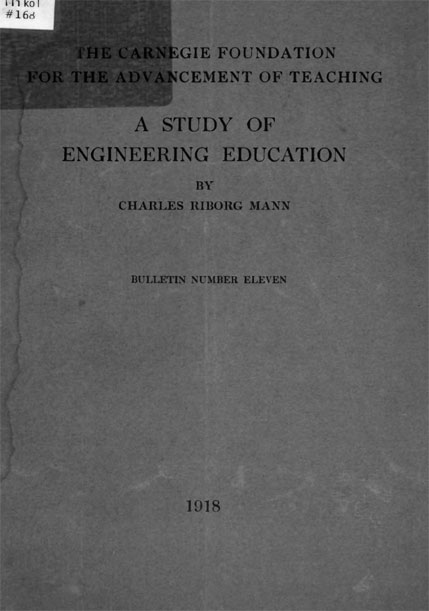
Success = 85% soft skills and 15% hard skills
Have you ever heard of this theory?
85% of job success comes from well-developed soft and people skills, while only 15% of job success comes from technical skills and knowledge (hard skills).
Let’s take a closer look at the source of this theory. A quick check on the internet comes up with many references to this theory, but it is unclear as to where it came from. Would you be surprised to find out that this theory originated from a research study on engineering education almost 100 years ago? That is right, 100 years ago!
In 1918, Charles Riborg Mann released his extensive research study on engineering education, A Study of Engineering Education, prepared for the Joint Commission of Engineering Education societies.
Pages 106-107 of the report explain that, at the first meeting of the Joint Committee of the National Engineering Societies, along with the Carnegie Foundation for the Advancement of Teaching, it was agreed that one of the first requirements of the study was to take a close look at analysis of the requirements for the engineering profession. Mann began with interviews with representative engineers concerning the factors that are most needed in determining success in the engineering profession. These interviews, together with a study of the methods of rating college graduates in several large manufacturing companies, showed that personal qualities such as common sense, integrity, resourcefulness, initiative, tact, thoroughness, accuracy, efficiency, and understanding of men were universally recognized as being no less necessary than technical skills and knowledge.
A further study with 1,500 engineers into the question of fundamental engineering knowledge verses personal character showed that personal qualities were mentioned seven times more often than engineering knowledge as being more important for job success.
If we do the math, hard skills account for 15% while personal qualities or soft skills come in at 85%.
A second questionnaire stating this result was then sent out to thirty thousand members of four large engineering societies. Each member was asked to rank six groups of qualities—character, judgment, efficiency, understanding of men, knowledge, and technique—in order of importance in judging the reasons for engineering success and in sizing up candidates for potential employment and promotion.
More than seven thousand engineers replied and their votes put character at the head of the list by a majority of 94.5%, while technique was voted at the bottom by an equally decisive majority.
Another similar definition of the essential requirements of the engineer was formulated by the research of Mr. A.M. Wellington, and published in Engineering News on May 11, 1893.
Mann concludes that the best curriculum for engineering education cannot focus on reason alone or on research in natural sciences. It must include extensive training on the other key attributes (soft skills) that relate to engineering success.
Over hundred years have passed since Mann released his research and we are still debating the value of soft skills training in the curriculum of our schools. Perhaps it is time to stop the debate and start taking action.
nice article
True
merci pour cet article très intéressant
That’s my Great Grandfather and I have the original (his) copy of this publication. Good stuff…